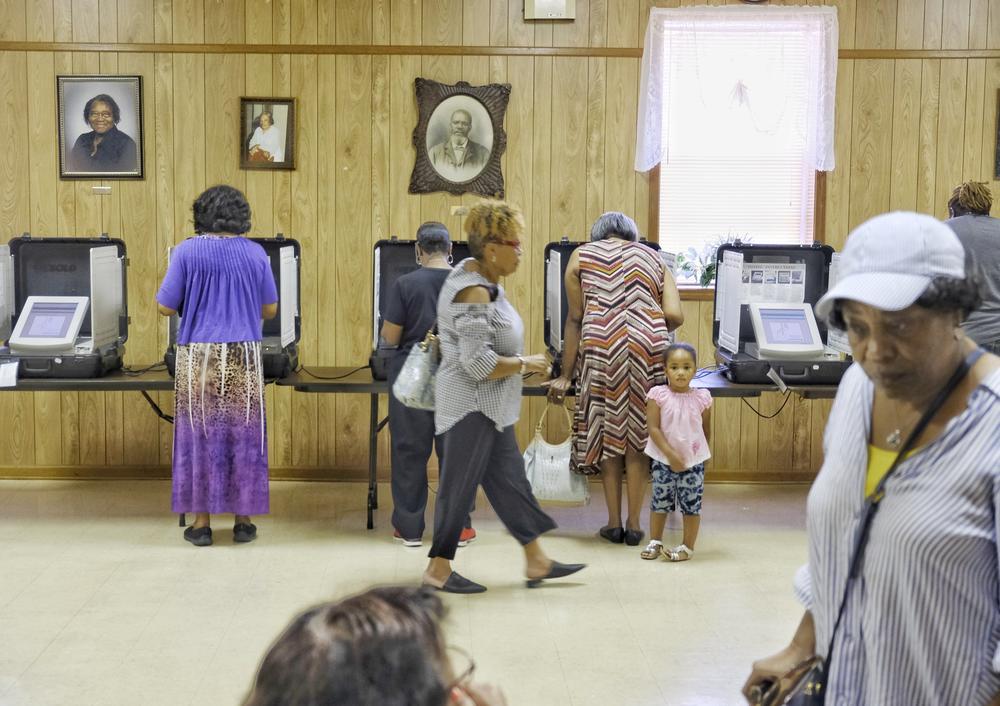Section Branding
Header Content
More Than 7 Million Georgians Are Registered To Vote In The March 24 Presidential Primary
Primary Content
More than 7.2 million Georgians are eligible to cast their ballot in the state’s presidential preference primary next month, as state officials prepare for both a record turnout and the rollout of a new statewide voting system.
According to data from the secretary of state’s office, there are more than 6.9 million active voters in Georgia and about 369,000 inactive voters, with even more registrations filed by the Feb. 24 deadline being processed in the coming days.
In the Nov. 2018 gubernatorial election, there were 6.9 million total registered voters on the rolls, with 507,235 of them in “inactive” status. The last time Georgia had a presidential primary election in 2016, there were 6.2 million registered voters, with only 4.7 million of them active.
Georgia’s voter registration laws have been both lauded and scrutinized in recent years.
The state led the nation in automated voter registration in 2018 thanks to a law that updates records any time a voter interacts with the Department of Driver Services. But Georgia also moved hundreds of thousands of registrations to “canceled” status after several years of inactivity and a failure to respond to mailed election notices.
The secretary of state’s office released the names of more than 313,000 voters set to have their registrations canceled as part of federally-required list maintenance last October. A federal judge upheld the removal of those voters, including about 98,000 voters that were nixed due to no contact with elections officials.
Only 4,500 voters acted to keep their registrations from being removed, and about 22,000 registrations were moved back to inactive status after filings in a lawsuit brought by voting rights group Fair Fight argued they were improperly moved.
Republican Secretary of State Brad Raffensperger said his office is working with local elections officials to prepare for high turnout across the three statewide elections in 2020.
“We've been telling the counties to expect two million people voting for the presidential primary, over five million people voting in the fall,” he said. “And to think about how many machines you need to keep your lines 30 minutes or shorter.”
More than 30,000 touchscreen ballot-marking devices have been shipped to the state’s 159 counties in the last few months, plus printers, scanners and other pieces of the state’s new $104 million voting system.
They’ll get their first statewide test once early voting gets underway Monday, March 2. Several counties have piloted the system in the November 2019 municipal elections and through a series of special state House and Senate special elections, and officials have taken note of problems and challenges uncovered to fully prepare for the statewide rollout.
Raffensperger also said that both voters and poll workers have to remember that voting is concentrated at the beginning, middle and end of the day and to prepare appropriately.
“You’ve got to prepare for those peak rush hours that you're going to have, just like Atlanta traffic, you’ve got to build enough lanes to handle the cars and you got to have enough machines in your precincts to handle the people.”


